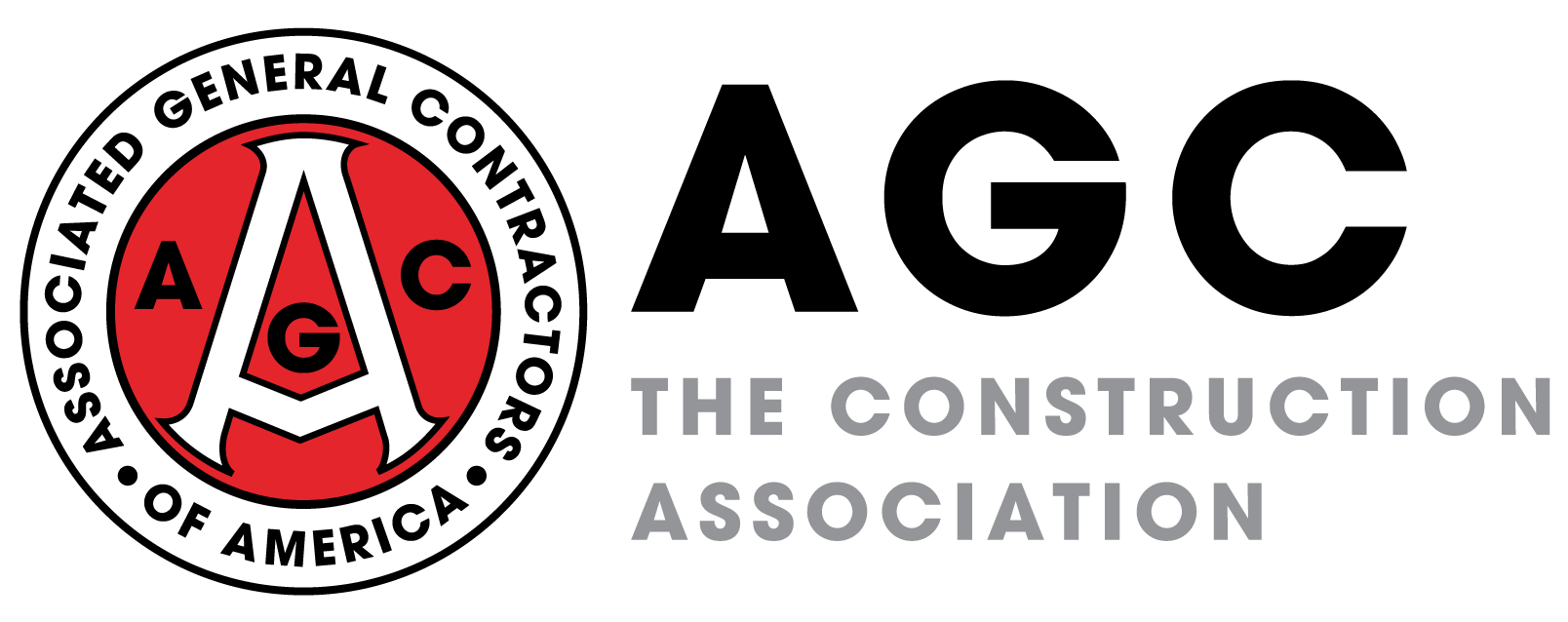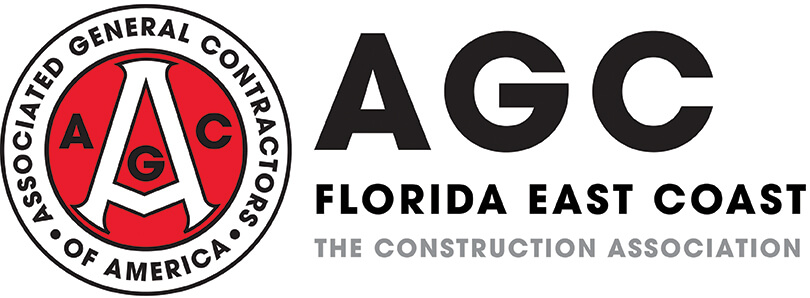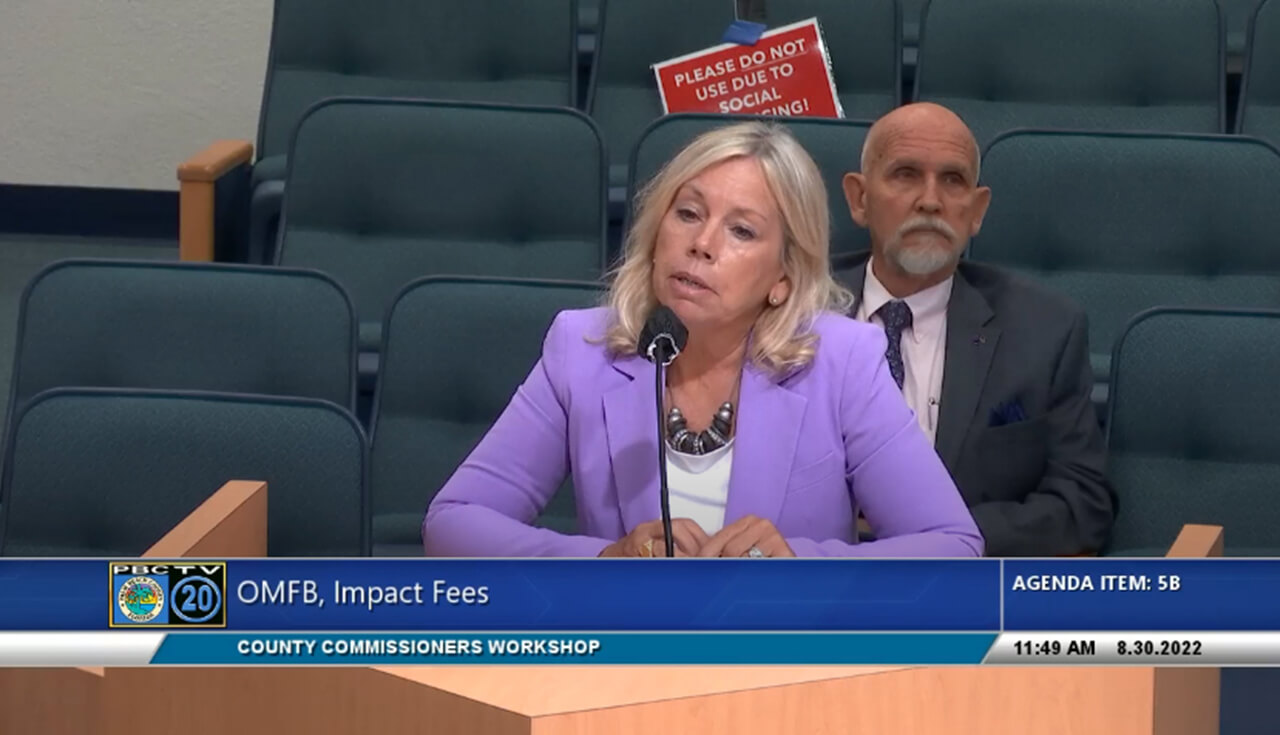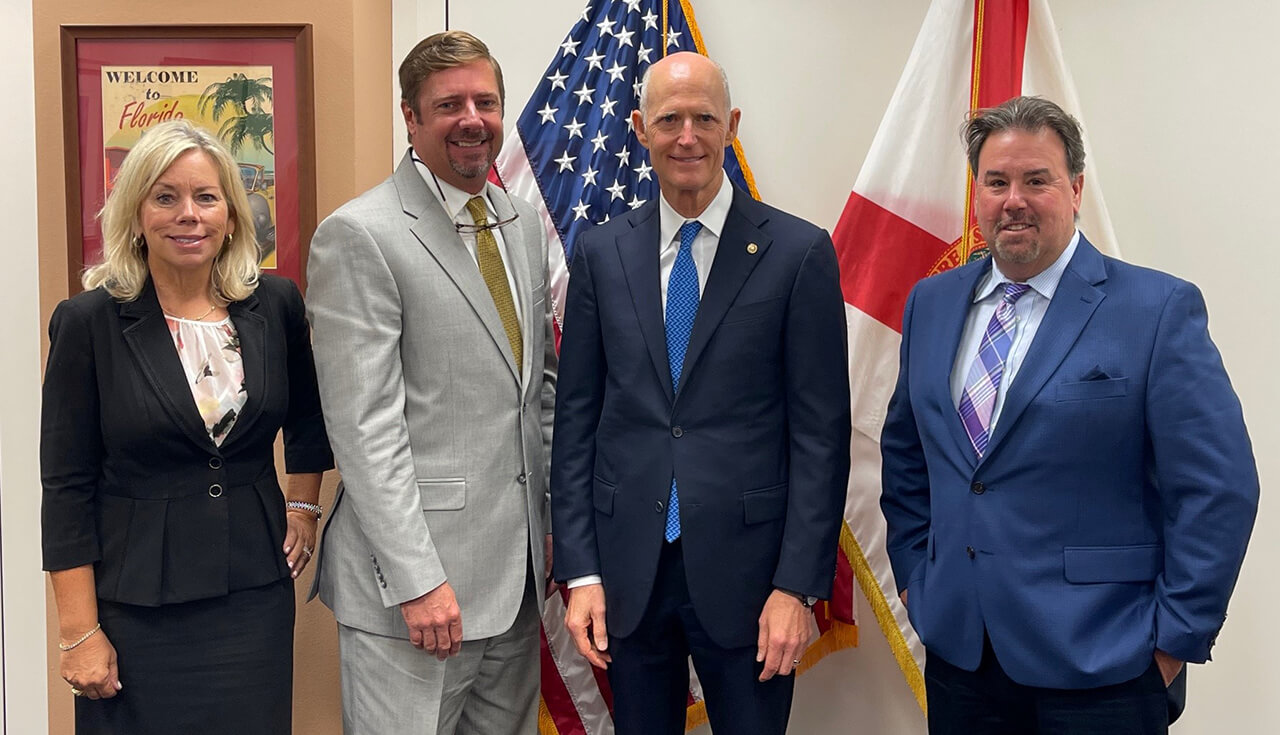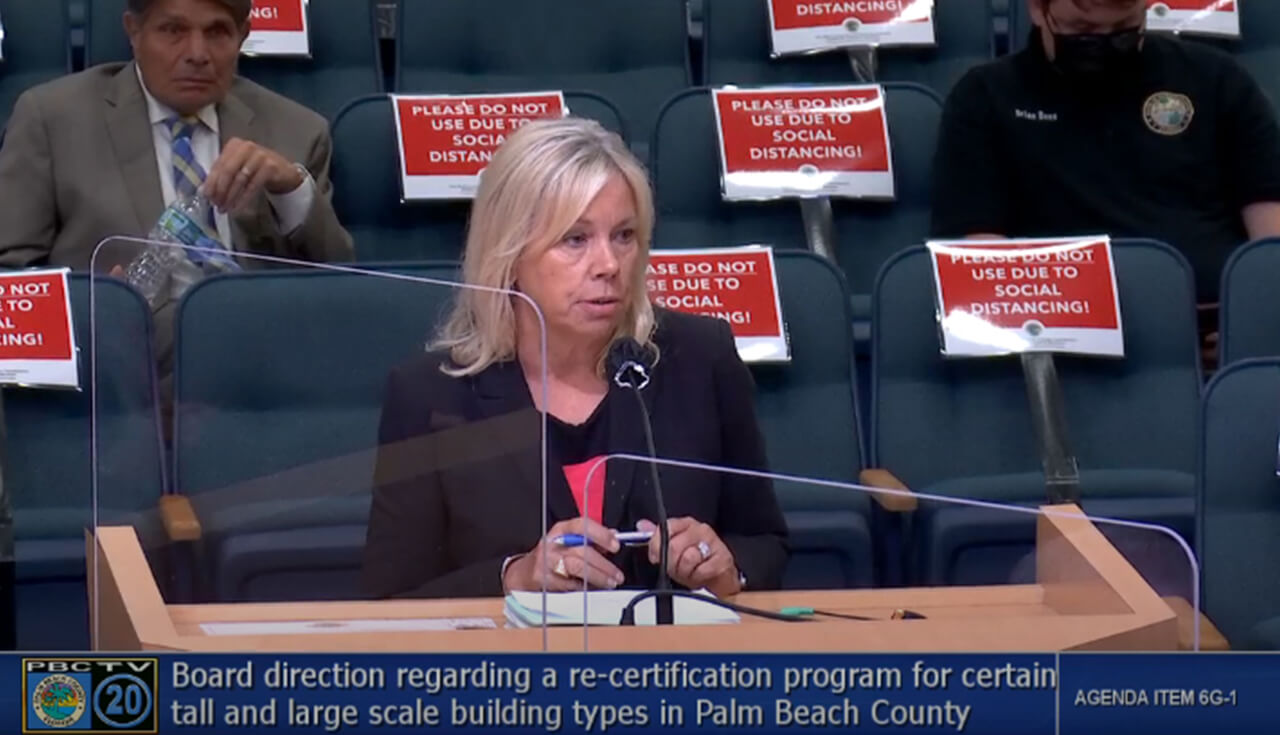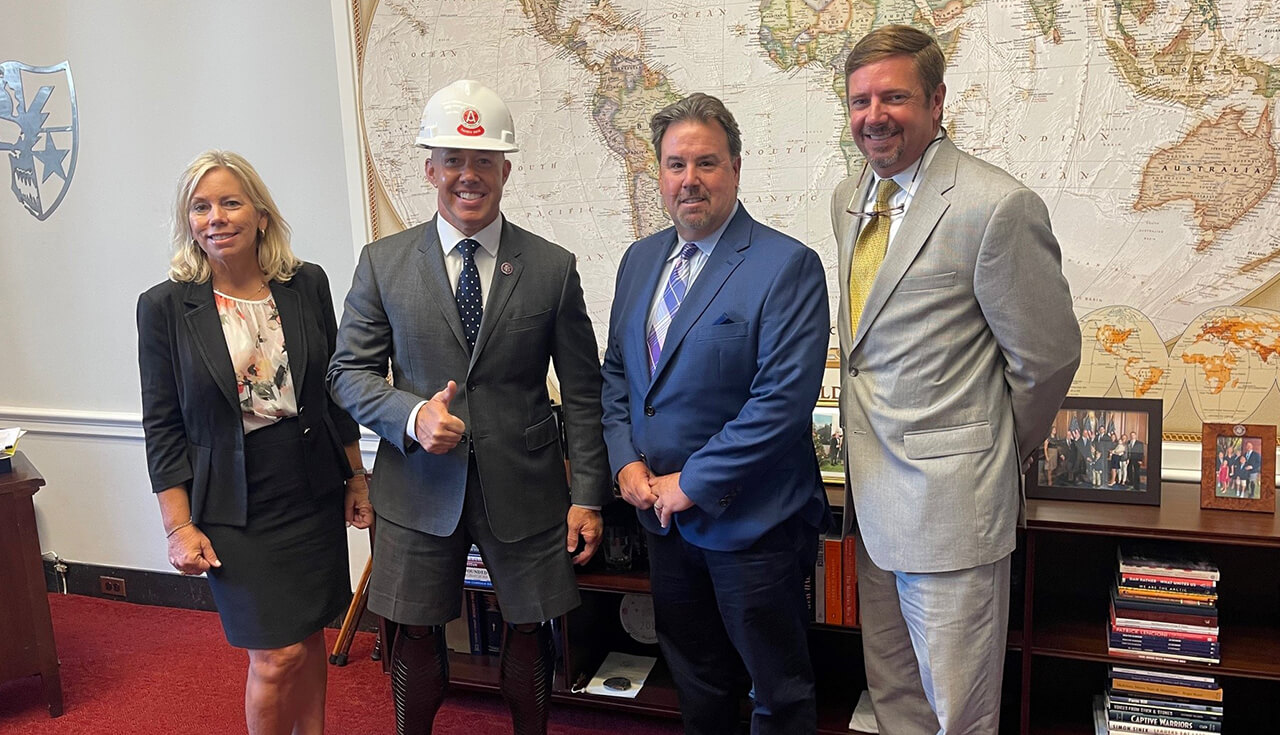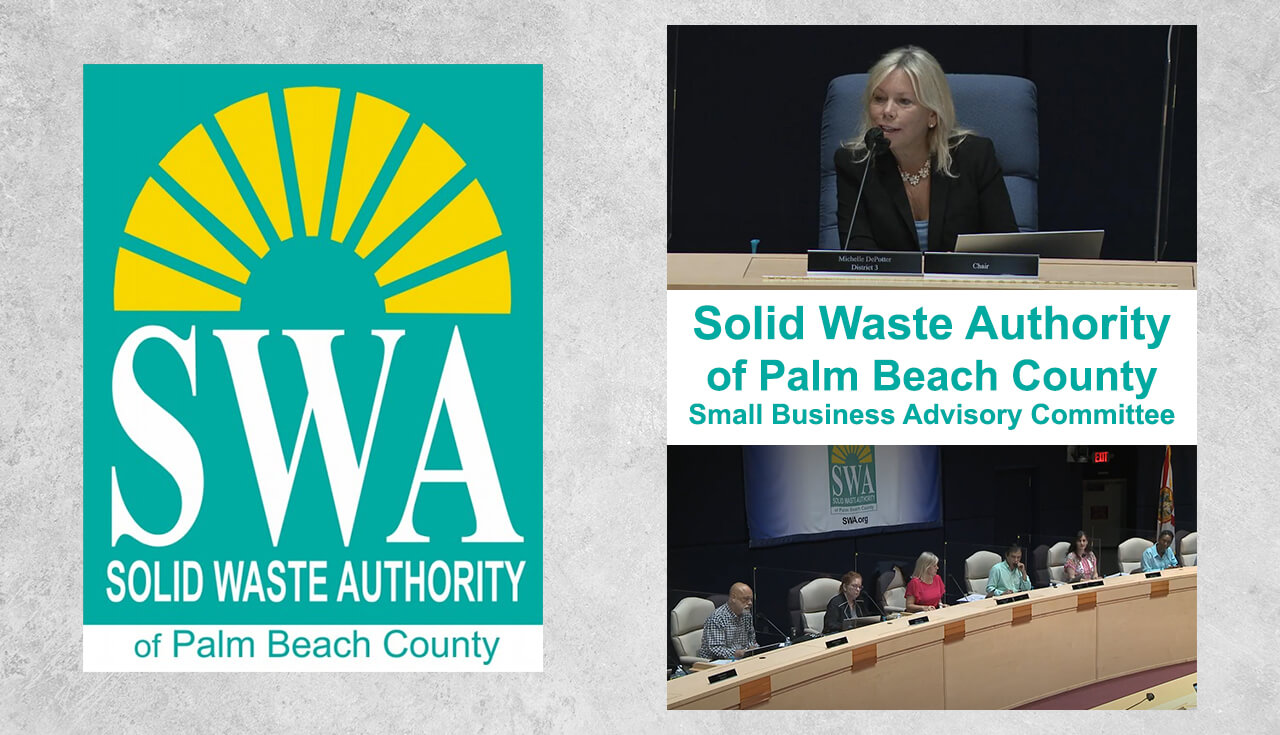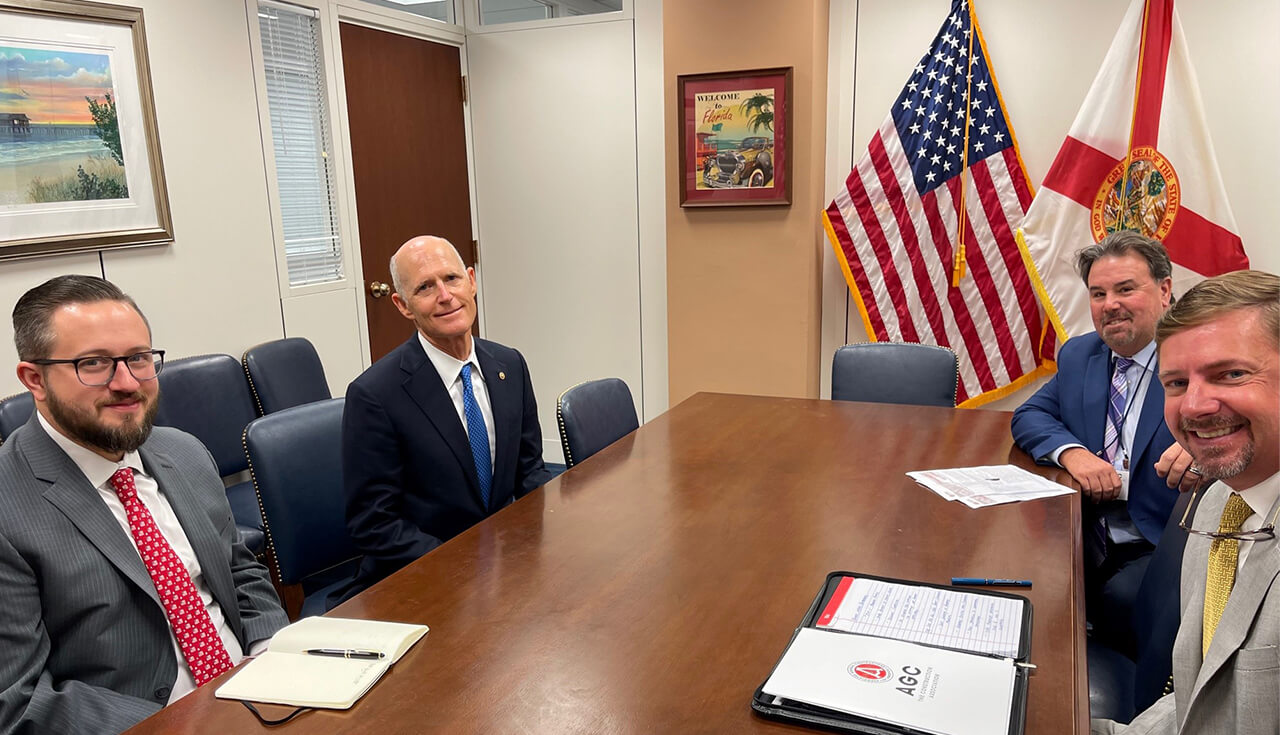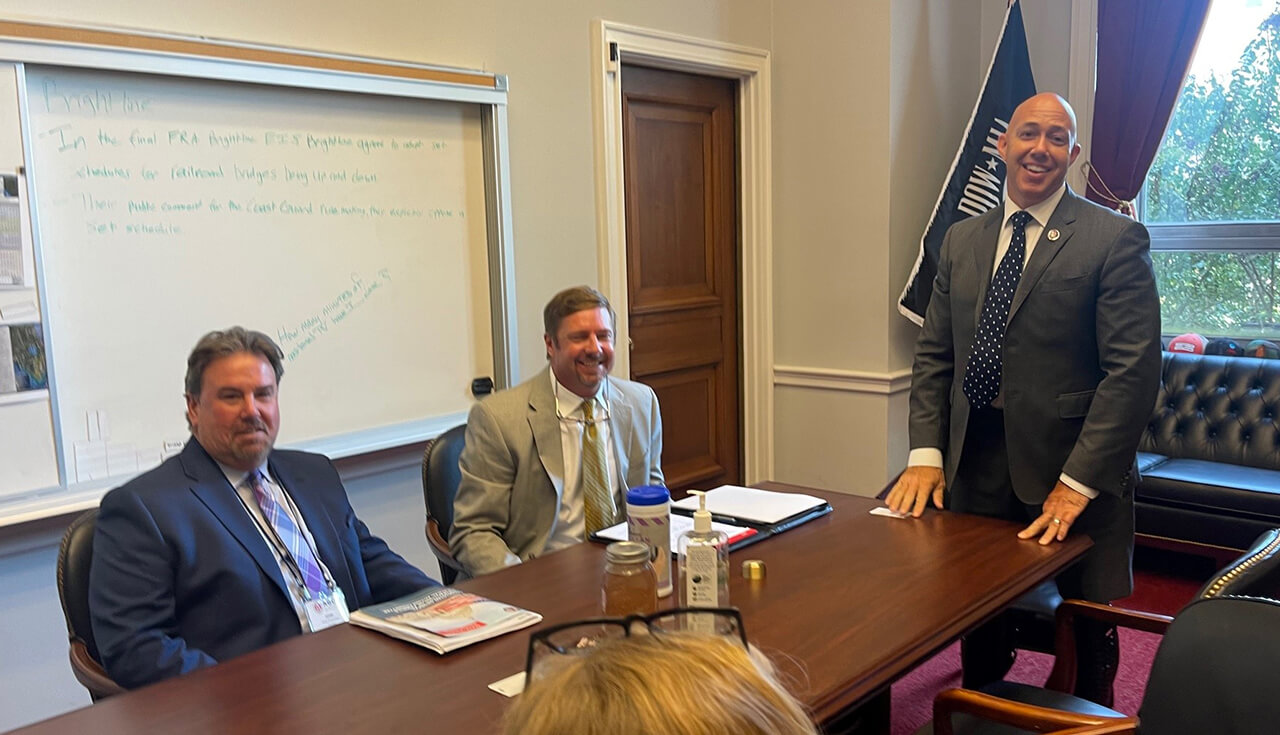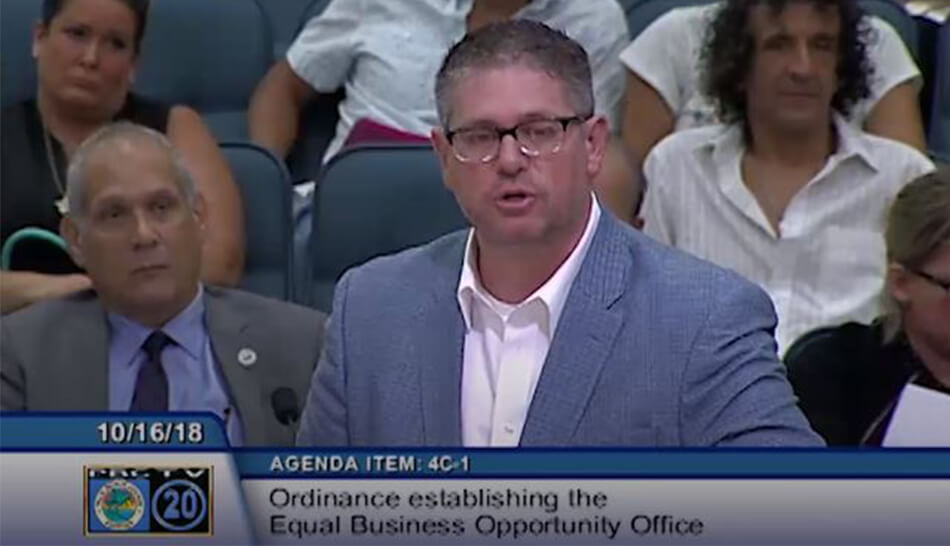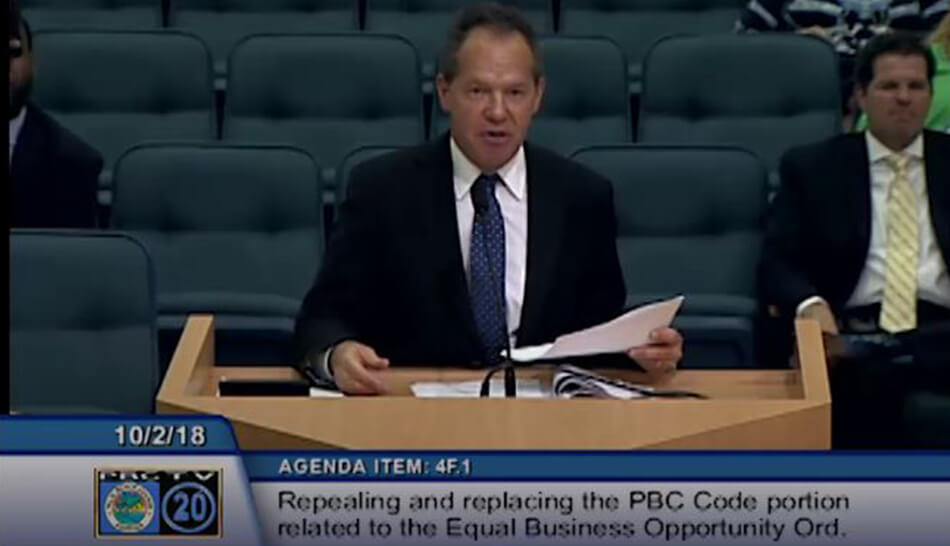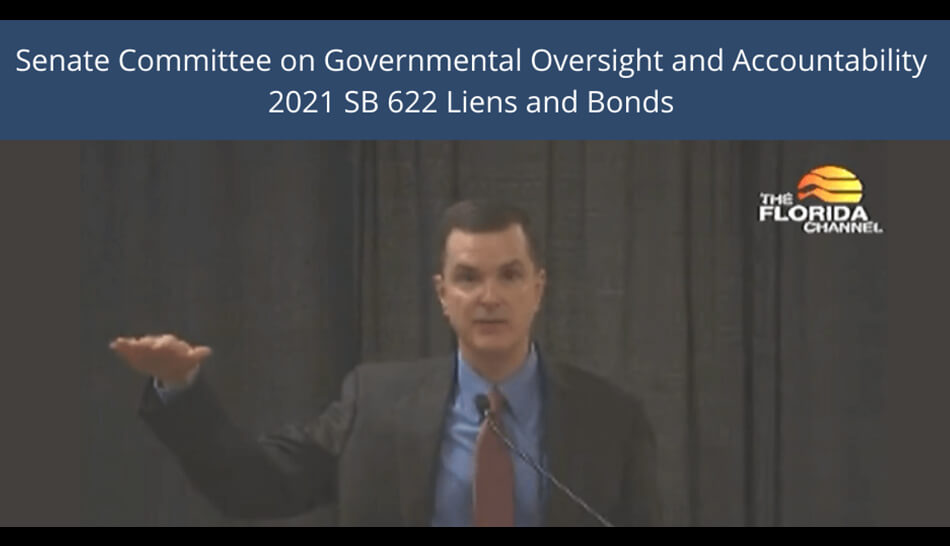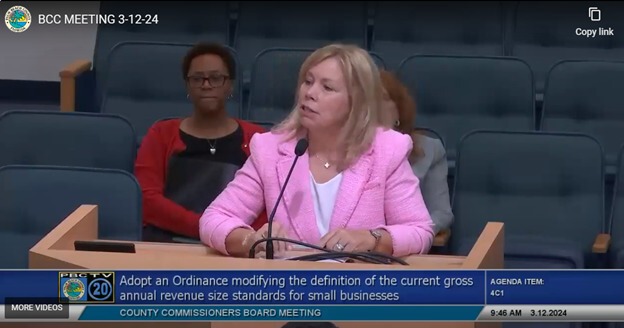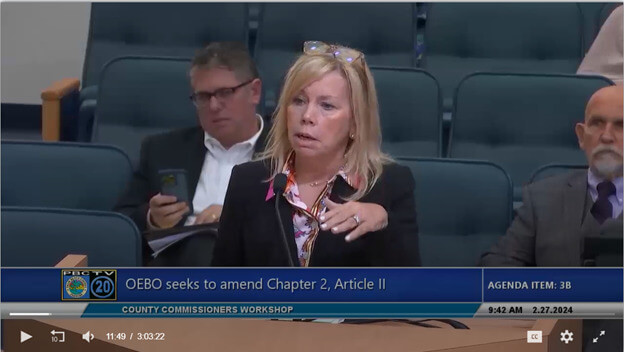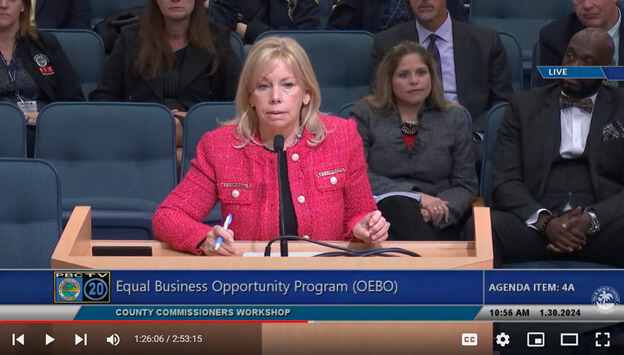Advocacy
AGC Florida East Coast has a powerful voice in local, state and national government
AGC Florida East Coast Chapter represents your company at all levels of government. Whether it’s national legislation, a state licensing bill or a county permitting issue, we are there to defend your business. We co-fund the services of a full-time lobbyist in Tallahassee for state issues who monitors important anti-business legislation and regulations so you don't have to. Additionally, our CEO, a registered lobbyist, lobbies at the local level in the various municipalities, cities, and counties FEC covers.
Florida’s Associated General Contractors Council (AGC Florida East Coast and South Florida AGC) is the only organization in Tallahassee dedicated to defending the interests of the state’s commercial general contractors. Year after year, thanks to general contractors all over the state who dedicate their experience, expertise, time, and resources, AGC leads the charge in shaping important legislation that impacts the bottom line of every general contractor in Florida. Here are just a few examples of state and local efforts:
HB 1247 was the AGC Florida Council’s priority bill in the 2019 legislative session. This bill, sponsored by Rep. Perez & Sen. Stargel, allows a general contractor to recover attorney’s fees if a surety refuses to perform under a subcontractor’s performance bond. It also creates a uniform”notice of nonpayment” letter, requires the notice to be submitted under oath and establishes penalties for fraud.
In the recent past, contractors could be sued for up to 15 years after a Florida construction project was completed. AGC successfully passed legislation to reduce Florida’s 15-year liability period down to 10 years, and efforts are now underway to reduce this period even further.
AGC has repeatedly fended off efforts to place statutory caps on retainage or to force “line-item” release of retainage.
In 2015, AGC passed legislation to modify the “notice-and-cure” process established in Chapter 558, Florida Statutes, to help speed the resolution of construction defect claims and reduce the need for litigation. These modifications include requiring the owner to identify the location of each alleged construction defect and expanding the exchange of relevant documents between the claimant and the contractor. This legislation also clarified that the Chapter 558 process and certain statutory warranties are triggered by the local government’s issuance of any certificate of occupancy that allows for occupancy or use of the entire building or improvement, regardless of what the local government might call that document, e.g., a “temporary certificate of occupancy.”
AGC has supported many improvements to the lien law to make it more workable for contractors. At the same time, AGC has opposed repeated efforts to make the law even more complex and costly to administer, e.g., making the contractor liable for sub/supplier attorney’s fees if they recover as little as $1, a “rolling” notice to owner/contractor that could be served at any time, etc.
Over the years, court decisions have unreasonably expanded the scope of bond claims, as well as the length of time for bringing claims. These developments threatened the ability of Florida contractors to obtain bonds and spurred AGC to repeatedly pass statutory changes to address these issues.
Bills are filed most every year to undo the AGC-backed workers’ compensation reforms passed in 2003 that finally brought some sanity to the state’s workers’ compensation system. The 2003 reforms resulted in premium savings of over 60% to general contractors. Adverse court decisions must also be reacted to, like one several years ago requiring the passage of legislation to reinstitute a cap on claimant attorney’s fees. Several new cases are making their way through Florida’s courts right now, any one of which may require swift legislative action to counter.
AGC has successfully opposed attempts in recent years to mandate the use of statutorily-prescribed forms for the waiver of lien/bond claims by a subcontractor or supplier. This mandate would render any other terms unenforceable, eliminating a general contractor’s ability to require additional waiver terms or to “pass through” additional waiver terms insisted upon by the owner or lender.
Faced with mounting budget pressures, local governments have launched repeated attempts in the Legislature to obtain the authority to fine and discipline state-licensed contractors – in effect becoming a second regulator. AGC has successfully opposed these efforts to impose duplicative regulation.
In 2013, AGC helped pass legislation that broadly prohibits local governments from requiring private businesses to provide most kinds of employee benefits, including health and disability benefits, sick leave and vacation time, and retirement benefits.
Recognizing that higher UC taxes were inevitable after the Great Recession, AGC successfully passed comprehensive reforms in 2010 and 2011 to minimize the tax burden on employers, focus the system on getting the unemployed back to work, and ensure that available tax revenues are used to pay benefits only to workers who are unemployed through no fault of their own. This legislation resulted in a two-year tax savings to Florida businesses of over $1.8 billion. AGC also successfully opposed an increase in the maximum UC tax rate on employers, which would have disproportionately affected the construction industry.
AGC backed the successful repeal of “joint and several liability,” ensuring that a party can no longer be held responsible for paying damages that are the fault of another.
In 2011, AGC helped pass legislation to limit the scope of local government business taxes, in response to an adverse Attorney General opinion.
AGC passed legislation in 2010 eliminating the sales tax liability of a contractor where a governmental entity directly purchases building materials on a tax-exempt basis but fails to comply with Department of Revenue requirements.
In 2011, AGC passed legislation to ensure a fairer process in which bidders cannot “preview” their competitors’ proposals and bid presentations. In 2012, AGC passed legislation to require local governments to conduct bid openings in public meetings.
AGC successfully worked both to preserve and expand the ability of public entities to procure construction management services, including turning back efforts to make price a primary initial selection criterion.
In 2011 and 2012, AGC passed legislation to speed the often lengthy and cumbersome payment process on local government projects. Among these changes was eliminating the practice of many local governments that conditioned payment on the contractor securing unnecessary bond waivers and releases from all subcontractors and suppliers.
AGC successfully backed legislation in 2013 authorizing counties, cities, school boards, and regional entities to use “public-private partnerships” in the delivery and financing of public buildings and infrastructure projects.
AGC passed legislation in 2012 authorizing local building officials to accept electronic plans.
In 2014, AGC passed legislation to significantly enhance the state funding available for construction and maintenance of facilities for public schools and universities.
In the face of declines in the responsiveness of local building departments, AGC successfully passed an alternative system that allows owners to use private providers to perform plans review and inspection services, with numerous improvements made to that system over the years.
AGC passed legislation several years ago to put specific conditions on a public entity’s use of an owner-controlled insurance program (“OCIP”) in connection with a public construction project.
On 3/12/24, on final reading and hearing, the PBC BOCC approved adopting an ordinance amending the Equal Business Opportunity (EBO) Ordinance to include the modification of the definition of the current gross annual revenue size standards for small business average over three years. AGC FEC was the only organization who moved this forward and the sole voice of testimony at the first and second readings/hearings, achieving a unanimous consent 7-0 BOCC vote at each turn as well as requested the modification to Program Administration as conveyed. This was item that had failed to pass through a different attempt late 2023. The PBC BOCC at AGC’s advocacy efforts and consistent engagement increased Construction from $9M to $13M for Construction, from $5M to $7M for Professional Services (Consultants’ Competitive Negotiation Act (CCNA) Required); from $5M to $7M for Goods; and from $4M to $5.7M for Professional Services (CCNA Not Required) and Other Services.
To View Testimony:
January 30, 2024 (1:22:00)
February 22, 2024 (00:10:45)
March 12, 2024 (00:16:00)
Click Here: AGC's Tesimony from February 27, 2024
Timestamp: 2:16:06
AGC FEC CEO & Lobbyist Michelle DePotter testified before the Town of Palm Beach Council, click here for AGC/DePotter’s testimony, on a matter that was urgently brought to our attention and fast tracking to the Council for a vote. The item was a potential for a Zoning in Progress (ZIP) Resolution, which included a six month (with potential of another six month extension) moratorium on new residential/ redevelopment construction projects in the R-B Low Density Residential Zoning District in the Town of Palm Beach.
On August 30, 2022, AGC FEC CEO Michelle DePotter testified before the Palm Beach County Commission on AGC’s opposition to the utilization of "Extraordinary Circumstances" relating to proposed impact fee increases. "Extraordinary Circumstances" was something new that came out of the 2021 State Legislative Session (not clearly defined) that would allow local county government to use this a means to justify surpassing the statutory limit of 50% increases.
On July 6, 2021, AGC FEC CEO Michelle DePotter and AGC FEC General Counsel Adam Linkhorst (Linkhorst & Hockin) participated with Palm Beach County’s Building Department in a Technical Advisory Discussion of High Rise Buildings in Palm Beach County following the condominium collapse in Miami.
During the COVID-19 pandemic in 2020, AGC Florida East Coast Chapter sent a letter urging Palm Beach County Mayor Dave Kerner to recognize the construction industry as essential, and provided resources on how construction industries are operating safely. Click HERE to read the letter. Click HERE for the AGC coronavirus resource page.
AGC FEC also collaborated with ESPN Radio to broadcast a PSA about health and safety in the construction industry. Listen HERE.
Michelle Anaya DePotter, AGC Florida East Coast Chapter CEO, testified at the Downtown Action Committee board meeting on August 9, 2017, on support of the proposed One Flagler Class-A Office Building. Watch her testimony here.
The AGC Florida East Coast Chapter and the South Florida AGC Chapter partner to comprise and equally fund the AGC Florida Council, AGC’s state legislative lobbying arm, utilizing the lobbying team of Metz, Husband, and Daughton.
